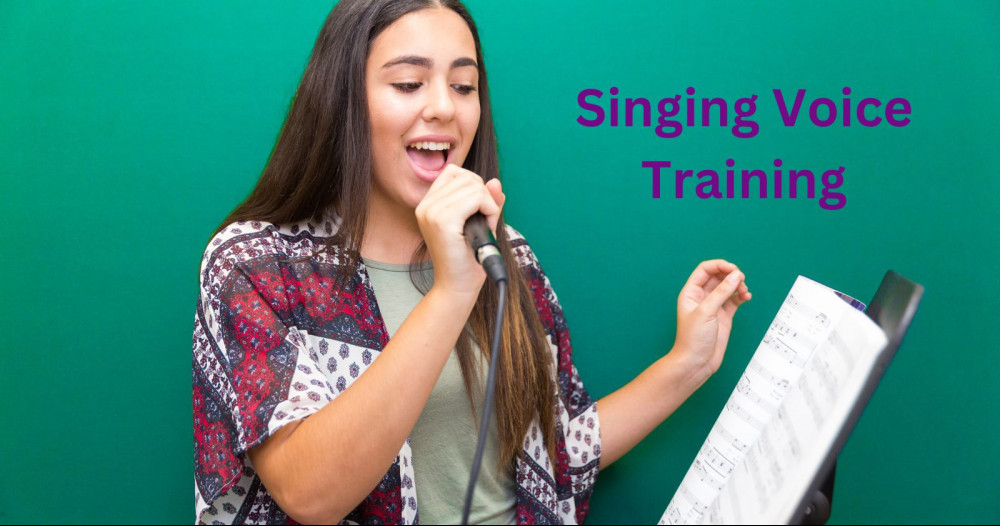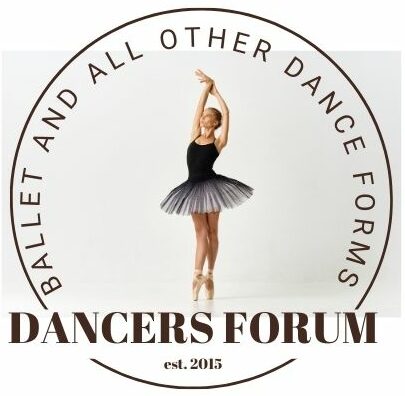This may sound strange, but as a dance teacher have you ever thought about taking up singing voice training?
If you are a teacher, your voice is a tool that you cannot do without, and unfortunately, just as the muscles in your body need to be trained to stay in peak condition, so do your vocal cords.
Many teachers, and in particular dance teachers tend to use their voices too much and also in the wrong way. Screaming over the music all day is not going to do your voice any favors, and you may discover that as you get older your voice will become weaker and sometimes even non-existent. This is exactly what happened to me.

Singing Voice Training For Dance Teachers
Did you know that classical singers are trained to sing loudly without straining their voices? They simply learn how to place their voices correctly, so instead of talking through the back of your throat, you have a feeling of your voice coming from a place behind your nose. Placing the sound vibrations correctly enables you to speak or sing louder without any stress on the vocal cords.
I started singing lessons a little over two years ago. Not only am I enjoying the lessons, but I am developing good habits that I can transfer to the classroom, and my voice is definitely getting stronger and lasting longer than it used to. I have also found that I have not had a throat issue for absolute ages, and I used to get laryngitis and infections quite often.
So What Is Vocal Training?
Vocal training is the practice of training your vocal cords and learning breath control to improve the quality, range, and stamina of your singing voice.
Voice training combines vocal exercises and warm-ups geared to enhance the sound of your singing voice while preventing vocal injury and strain.
Vocal training helps condition and strengthen the vocal cords, creating greater sounding pitch and better control. This helps singers and people who use their voices like teachers or public speakers.
What Are The Benefits of Singing Voice Training?
If you are interested in improving your singing voice or your talking voice, singing voice training will benefit you.
Some of the benefits include:
A Better Sounding Voice
Singing voice training helps to coordinate your larynx muscles, which helps even out your vocal tone and condition your throat muscles which improve the way your voice sounds. No more croaking at your class.
Better Vocal Control
By training your voice you can potentially expand the range of your voice and will then be able to use different vocal techniques on command.
Increased Voice Stamina
If you misuse your vocal cords, you will damage them over time. Conditioning them can help to increase your vocal stamina. The more your train your voice, the longer you will be able to use it without straining it. Similar to getting fit. The fitter you are, the longer you can be active.
How Does One Go About Singing Voice Training?
Always Warm-Up
A good vocal warmup is essential to prepare your voice for singing, or even public speaking. Like dancing, you need to warm up the voice before singing to prevent injury and ensure you get the best vocal sound.
You can either use a piano or music app to practice by matching the pitch as you do your vocal scales. Breathing and mouth work is also important here. You can practice the vowel sounds and watch the shape of your mouth with each of these letters. Work on keeping your face as relaxed as possible while you project your voice.
Make sure to work within your vocal range as much as possible. Finding your vocal range will help you determine what kinds of songs you will be able to sing comfortably without straining your voice.
The different types of vocal ranges are soprano, alto, tenor, baritone, and bass, which is the lowest type of voice.
Work On Breath Control
There are many breathing exercises that singers do to help with breath control, including diaphragmatic breathing which focus on breathing through the diaphragm. The proper use of breath control helps a singer control the vibration of their vocal folds and expand their lung capacity.
Enunciate And Sing With Emotion
Your singing will only be enhanced if you can sing with emotion and watch how you sing your words. Your audience should be able to hear what you are singing about as well as feel the music through your emotions, and this takes a lot of extra time and practice if you want to perform in front of people and connect with them.
Record Your Voice
If you record your voice, you can play it back to yourself and listen to your tone, cadence, and pitch. You may also surprise yourself, as most people feel they sound better than they think they did. Compare yourself to the original recording and try and make your piece unique, not an exact replica.
Be Confident
Project your voice with confidence, accepting the fact that you may sing poorly at first. All good singing does take a lot of practice but believing in yourself is the first step.
How Can I Get Singing Training?
Whether you want to improve the way in which you use your voice or become a singer, it is essential to get some good training. If you can’t do it live or on zoom as I do there are luckily some great courses available online. However, these cannot fully take the place of the real deal.
Here is a great option for those of you who would like to go the online route.
 This is Melanie Alexander and she has developed an online singing program that you can purchase for a once-off fee.
This is Melanie Alexander and she has developed an online singing program that you can purchase for a once-off fee.
She was a member of the Australian band Girlfriend and has had some hit singles under her belt.
She will teach you how to use your vocal cords properly so that you can get your best-sounding voice. Anyone can learn to sing if they are willing to put in the practice.
She has developed a system of ‘vocal calisthenics’ which with fifteen minutes of practice a day will transform your voice.
The course consists of 28 lessons where you can learn about understanding your voice, breathing techniques, types of songs that suit your voice and tone, and more.
Listen, sing, and watch your progress grow as you work through the Interactive audio sections:
– Getting Started as a Singer
– Vocal Technique
– The Technical Stuff
– Singing Style
– Learn Entire Songs
– Your Future as a Singer
The course also includes audio tracks so you can practice what you learn including:
– Vocal Warmups
– Vocal Strengthening Exercises
– Range Extension Exercises
– Interval Training for Singers
They have even included three original songs for you to learn.
Other bonuses include a recording studio app and a metronome, as well as workbooks for beginners and more advanced singers. I also love the included ebook to explain the basics of reading music, which every singer (and dance teacher) needs.
I use this online singing program and app to help strengthen my voice as well as the once-a-week lessons I receive from my coach. I love the app as you have the exercises to use on the go, and they are an excellent warm-up before you start to teach.
Try it out, you have nothing to lose and if you are not happy there is a money-back guarantee.
This post contains affiliate links.



Hey thank you for this interesting post!
I have actually always wanted to be able to sing and therefore tried practicing with vocal exercises however it is always a best idea to voice train professionally with a teacher that is aware of singing in the best and correct way possible.
Like you have stated vocal warming up is essential as is using the correct breathing techniques. Confidence makes a difference too!
Thank you for the suggestion of Melanie Alexander, I will check it out!
Have a great day!
This is such an interesting article! I’ve never thought about doing singing voice training, but after you talked about how dance teachers need stronger vocal cords to speak above the music and whatnot, it made me think about my own experience as a badminton coach. When I coach, everyone is always so far away from me, and I really have to yell for them to hear me, which made me realize the singing voice training could really help me. How much does Melanie Alexander’s program cost?
I paid $67 at the time of purchasing my copy. The course is really well set out and I am enjoying going through the material.
At the risk of sounding like a grandparent, I read this article despite the fact that it is title Singing Voice Training for Dance Teachers. My granddaughter from the age of 3 has demonstrated an unusual ability to sing in terms of range, pitch and voice quality. She inherits her voice from her grandmother. I am wondering if the online coaching that you identified might be a way to see if there is any reason to offer singing lessons in the future. My granddaughter is 9 now and very self-conscious about singing for anyone. The online forum, if accessible, might be perfect. I am going to look into it.
I think she may just need to be guided, as the lessons may be a bit complicated for a nine-year-old, but she can sing the exercises in her own time and on her own once they are explained to her, so this may be a good option for you.
This is truly what I have been looking for all along, I belong to a local choir where I worship and I realised that anytime I come to sing there are no warm-up exercises done before our performance or rehearsals, we tend to shout and strain our voices causing lots of headaches during and after our practice. I can really see what we are not doing correctly, your write-up is indeed a blessing, I am confident that if I practice what you’ve recommended we would do exceedingly well. Thanks for this amazing article.
Just as it is important to warm up before exercising, the voice also needs warming up to prevent strain. Glad to be of help.
Great job highlighting the importance of vocal training for teachers and, in particular, dance teachers, who often strain their vocal cords by shouting over the music. Vocal training not only helps to improve the quality, range, and stamina of the singing voice but also helps to prevent vocal injury and strain. The benefits of vocal training include a better-sounding voice, better vocal control, and increased voice stamina.
Thanks for sharing useful tips for training, such as warming up, working on breath control, and singing with emotion.
Thanks for stopping by Aly and yes not only is singing training useful, but it is also fun and who knows you may find a new hobby you can become passionate about.
Thanks for guiding us to the online singing program of Melanie Alexander. I’ve been looking for an online program like this where I can learn voice lessons without leaving home. I really need something like this as my current location does not allow for traveling for a distance attending face-to-face voice lessons. So, this comes a perfect fit for me.
One thing I’d like to know, because, back then when I was in high school, I got the pleasure of enrolling in a voice lesson for teens. Back then, the focus of the teacher was to develop our vocal chords for choir singing which disappointed me so much, as the type of singing I want to learn is like those done by pop singers like Bon Jovi.
Do you think the principles or techniques taught by Melanie applies to rockstars too and not just for classical singers?
Yes Gromer, this is more for commercial singers as opposed to classical singers.
I have studied dance and danced all of my life, but I am unable to carry a tune. I would absolutely love to be able to sing because of my love of music. I have never taken any voice lessons as I have convinced myself I cannot sing after a silly incident in grade school where I was instructed to stand on a desk and sing in front of the class and I was terrified and embarrassed. It’s interesting how those experiences impact our lives. In any event, I enjoyed your article.
Singing is surprisingly fun, even for me who has also just danced all her life. I think all performers should add singing and dancing to their repertoire, as these people are considered a triple threat if they can act too.
Thank you for a great article about singing and how easily you can learn. This is an excellent recommendation for doing the singing course with Melanie Alexander and what an opportunity for all the budding singers out there. I’ve never been good at singing, as I think I am tone-deaf. But singing is such a fun thing to do. Also for dance teachers to have another skill and save their voices in the process. I was listening to the radio about Eurovision Song Contest and how the judges love the acts that can sing and dance
Thanks for your comment Lucy. I think we are all tone-deaf if we haven’t had the proper training.